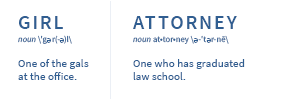From The Atlantic authored by Ashley Fetters:
“Charles Worcester Clark’s “Woman Suffrage, Pro and Con,” an essay published in the March 1890 issue of The Atlantic, does not read like the kind of thing the author ever expected a woman to see.
Over the course of nearly 7,000 words, Clark asserted that women in the United States didn’t know the difference between the roles of the state and federal legislative bodies that governed them, so busy were they with the demands of motherhood and household maintenance. “The average man understands the difference in functions of national and state governments, and knows what part the candidate for whom he votes will have to play if elected. The average woman knows nothing of this,” Clark wrote. “Neither has she any idea what the tariff is, though she may applaud or denounce it with all the vehemence of the party newspaper she occasionally reads. This ignorance is not discreditable to her, for she has enough to do already, but it exists.”
Just one major irony of Clark’s statements about women is that it would not be long before women themselves wrote for The Atlantic about women’s suffrage: As my colleague Annika Neklason notes, in the years leading up to the time women’s suffrage became law in 1919, The Atlantic published a number of essays about the topic by female writers, starting with Elizabeth McCracken in 1905. (As I write this, it strikes me as unlikely that Clark ever guessed his essay would be revisited more than a century later by a female Atlantic writer, who would file her commentary on it to a female Atlantic editor, who would then pass it along to four other women who would handle its copy-editing, visual production, and executive sign-off. And yet, here we are.)
Ultimately, writers of both genders came down on both sides of the suffrage question. But a look back into the archive also reveals a popular, now amusingly quaint line of reasoning among the thinkers of the time: that women’s voting rights and their inherent duties as mothers and homemakers simply couldn’t peacefully coexist. Women’s sphere of influence was in the realm of the home and family, rather than in public affairs, many argued. Extending voting rights to—or, as these authors described it, imposing voting duties on—women could upset the delicate balance of the separate powers of the sexes.”
Read the full story by FOLLOWING THIS LINK

